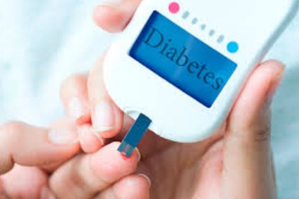New York, 9 February (IANS). Researchers have found in research that mitochondria that produces energy for body cells is the key to the treatment of diabetes.
Diseases like diabetes type 2 are related to malfunction in the “mitochondria” present within the cells.
Patients suffering from this disease are unable to produce sufficient amount of insulin or are unable to use insulin produced by their pancreas to maintain blood sugar at a normal level.
Several studies have shown that insulin producers of diabetic patients are abnormal in pancreatic cells and are unable to generate energy.
However, this study has been unable to clarify why cells behave in this way.
In a new study published in the Science Journal, researchers at the University of Michigan, USA, used on mice to show that mitochondrias do not work properly produce a reaction that affects the maturity and function of these cells.
“We wanted to determine which avenues are important to maintain proper mitochondrial work,” said Emily M. Walker, a assistant professor of internal therapy and first writer of the study.
The team damaged three components that are required for the function of mitochondria: their DNA, a passage used to get rid of damaged mitochondria, and one that maintains the healthy pool of mitochondria in the cell.
Walker said, “In all three situations, the same type of stress reaction arose in the body. It made the pancreas cells immature, so that they could not produce enough insulin and eventually the pancreas cells were not there. It is revealed that mitochondria can send signals to the cell nucleus and change the way the cell functions. ” Researchers also confirmed their findings in human pancreatic islet cells.
The destruction of pancreas cells is the direct cause of diabetes type 2. This study helps us understand how this happens and how to find a solution to this problem.
The team is working on further analyzing the cellular routes that are interrupted, and they hope that they will be able to repeat their results in the cell samples of diabetic patients.
-IANS
DKM/AS






